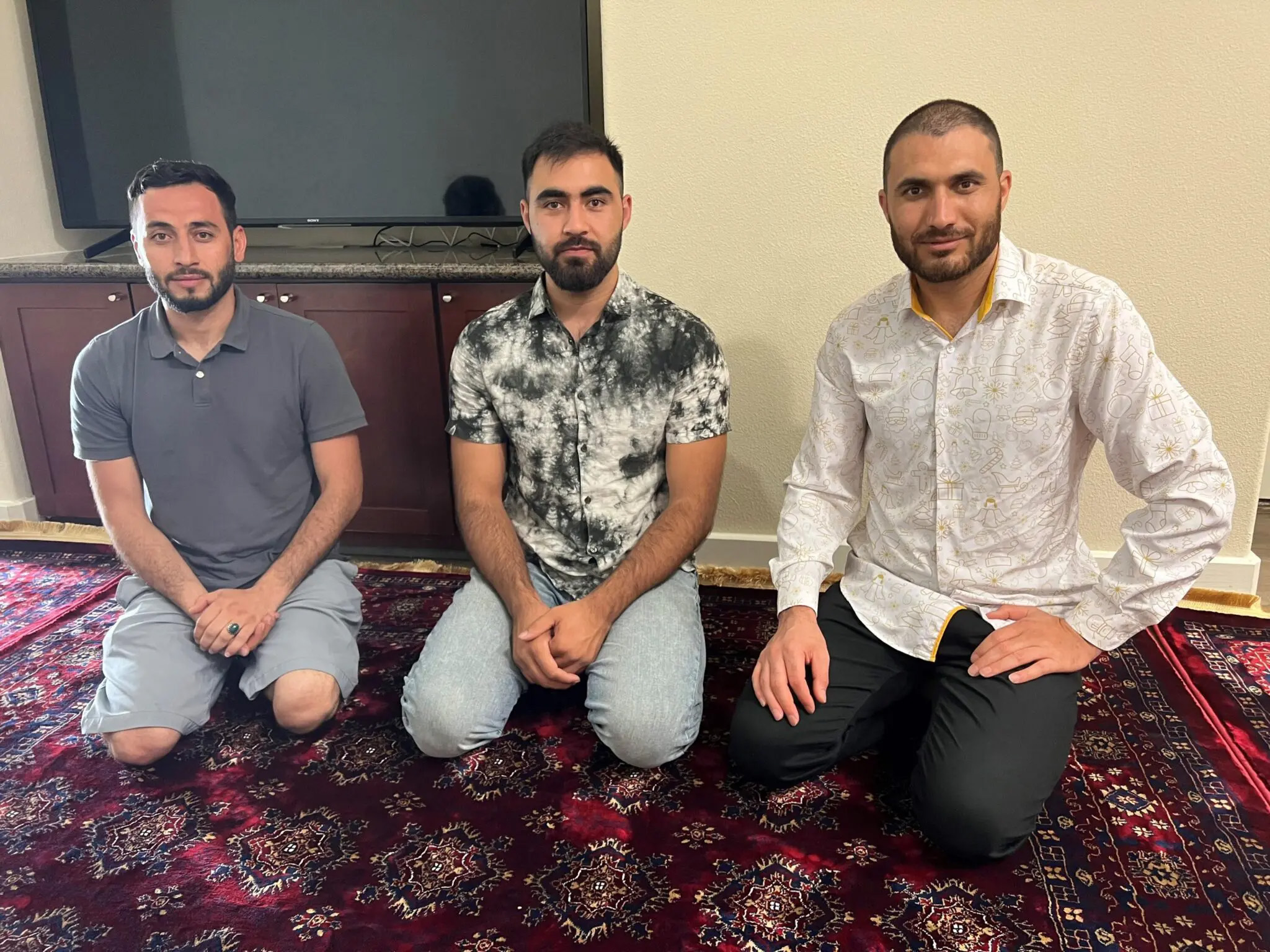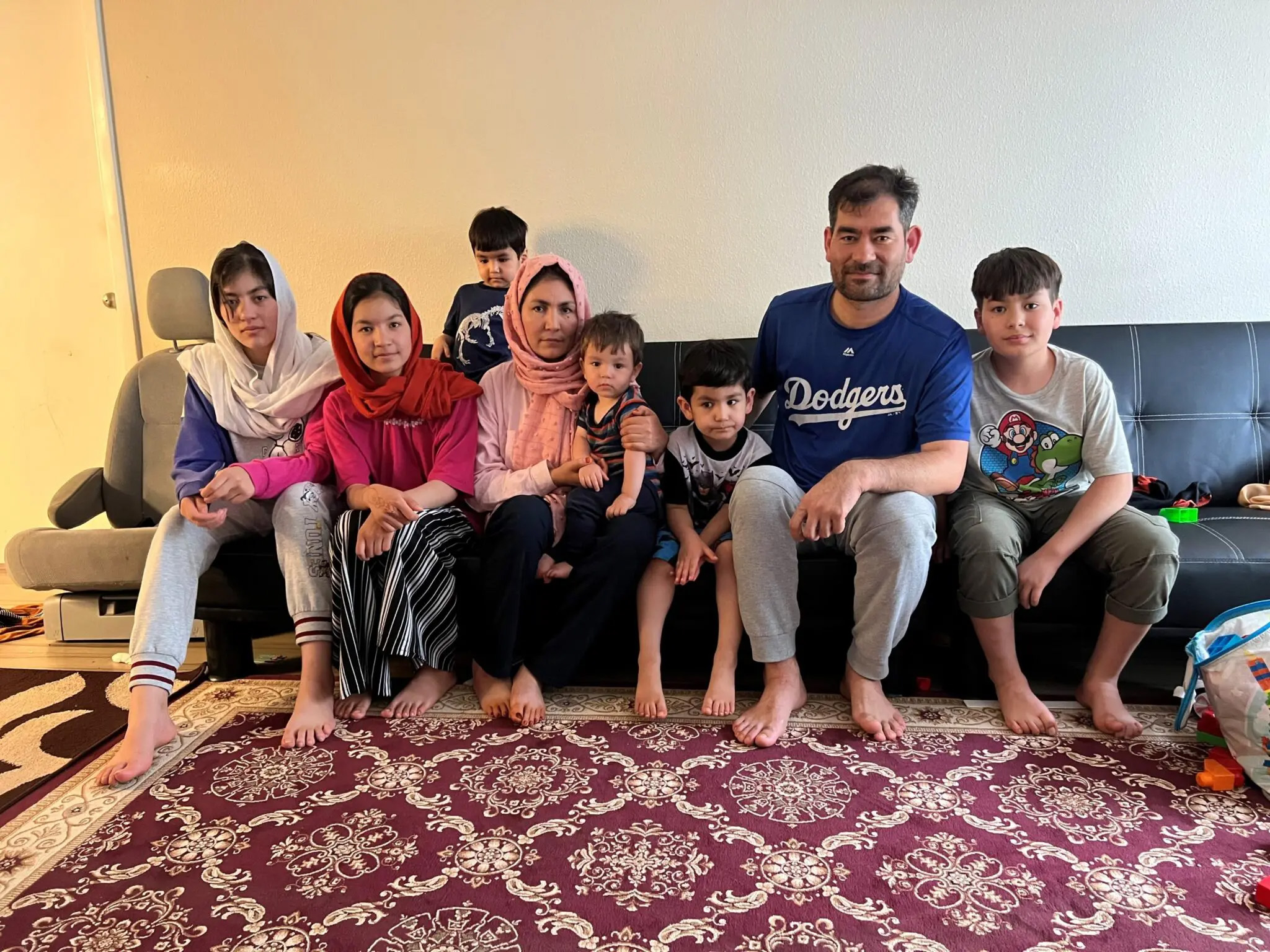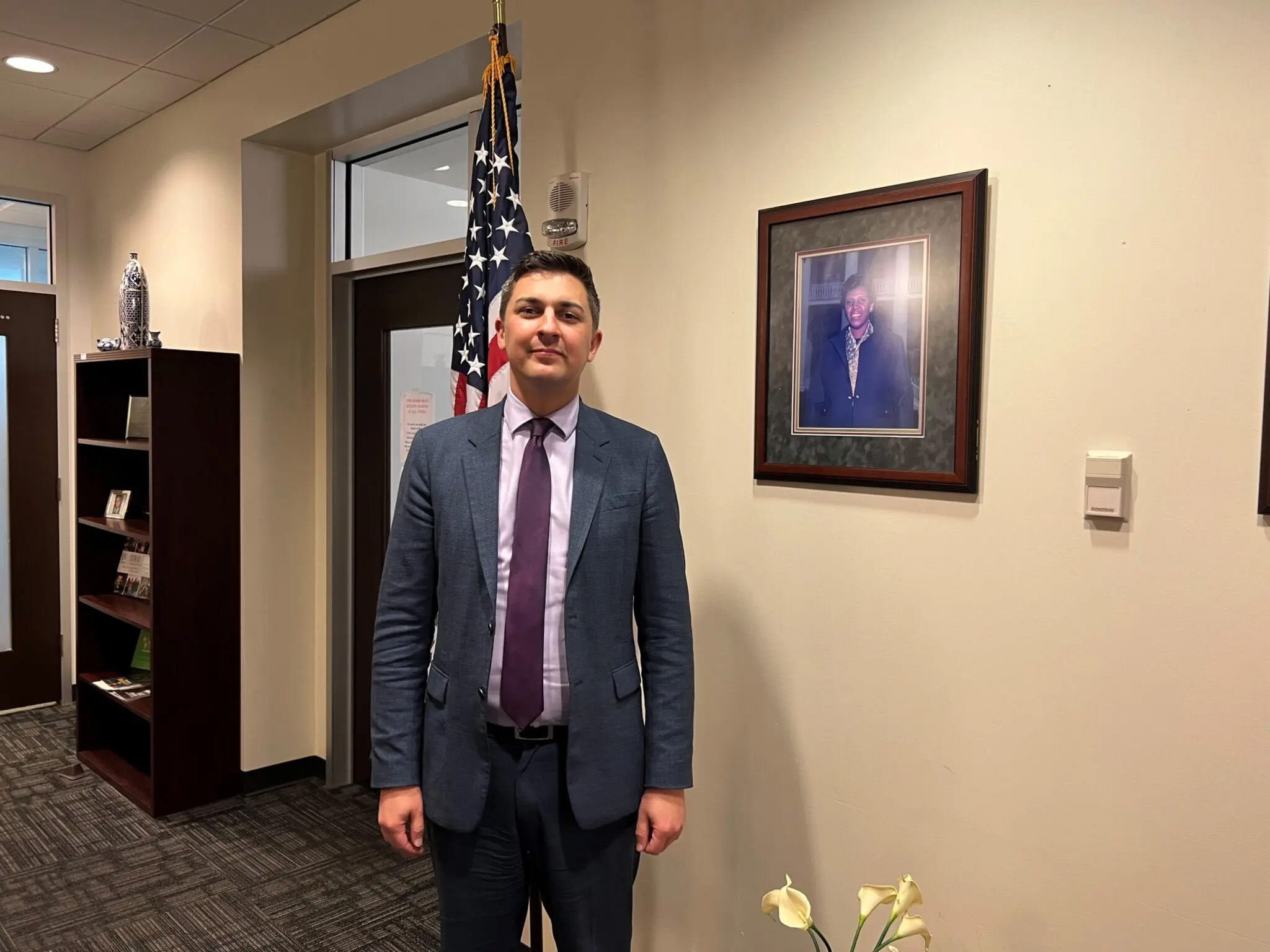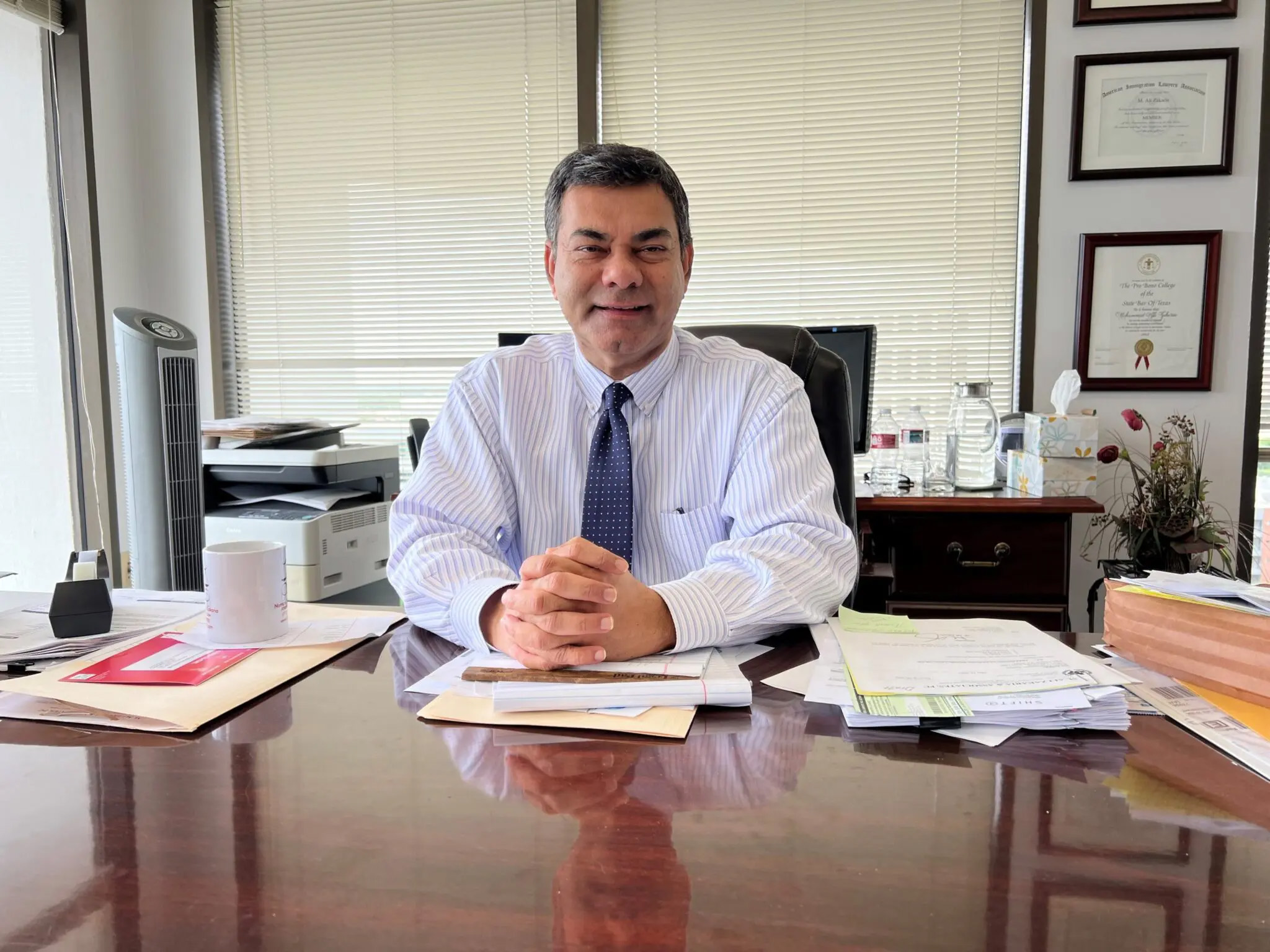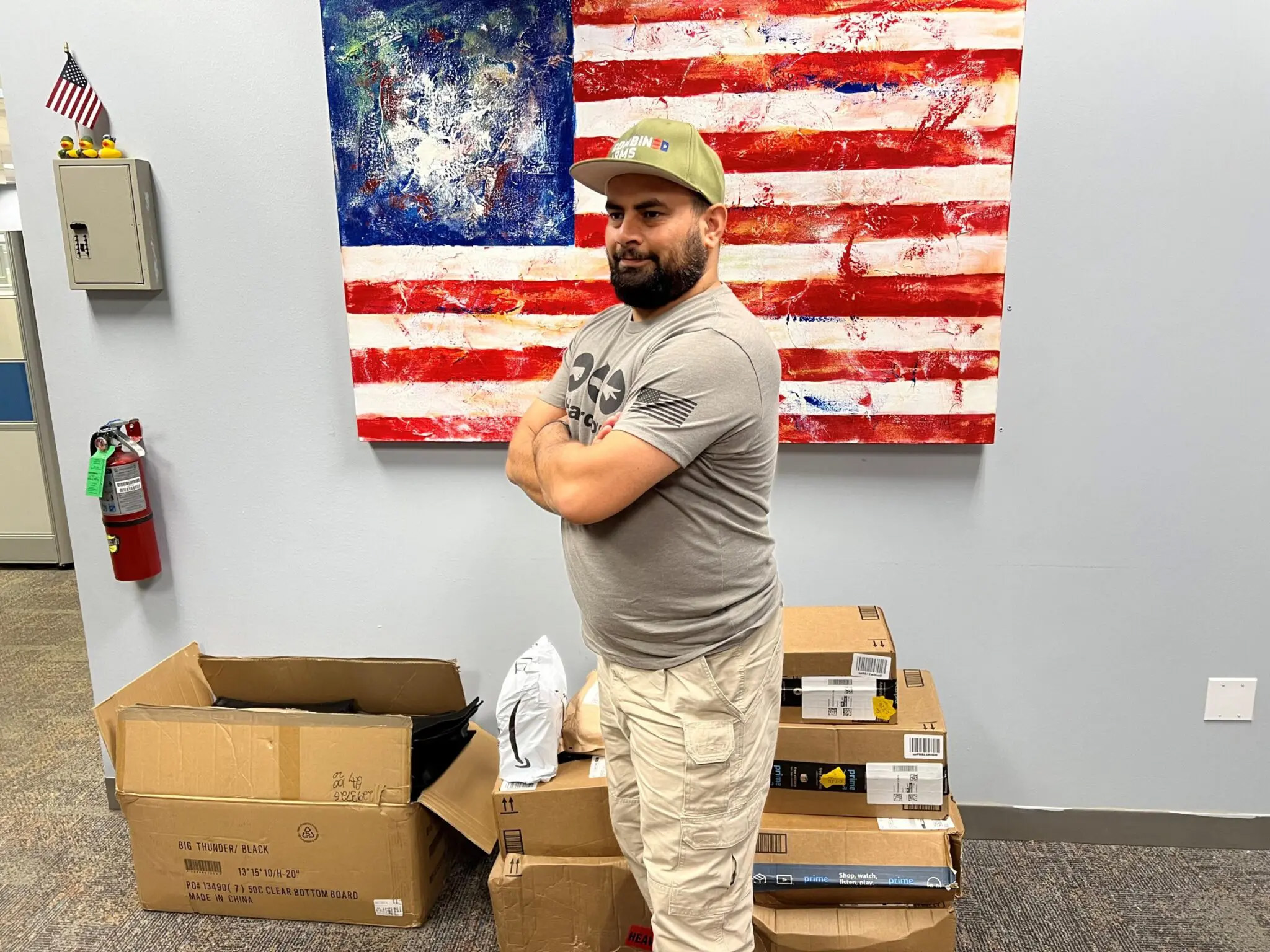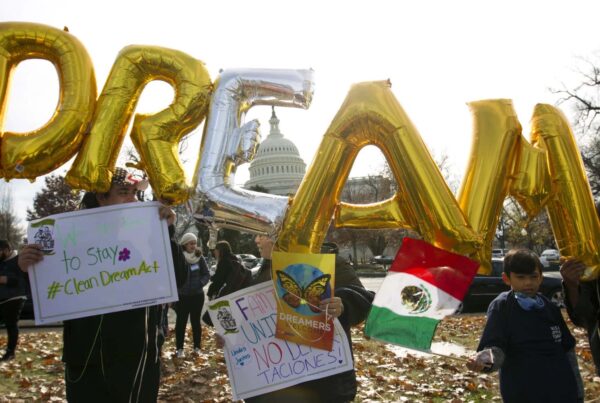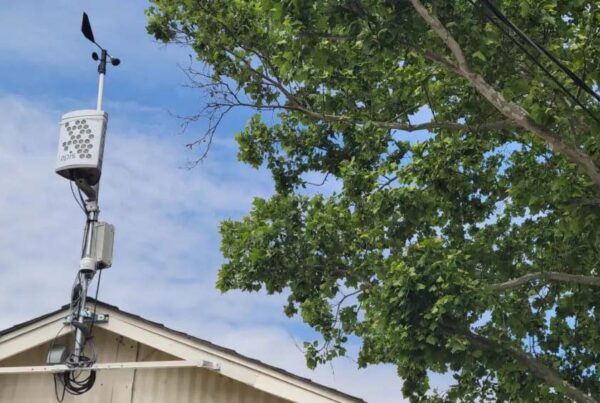Are you or someone you know in the Houston area on humanitarian parole? If so, what is the biggest challenge you are facing trying to get on a path to citizenship? Email Andrew Schneider at andrews@houstonpublicmedia.org or contact him on Twitter @aschneider_hpm.
The United States has taken in more than 100,000 refugees from Afghanistan since the country fell to the Taliban in August 2021. The Houston area has been a magnet for those refugees, one of the most significant destinations between the East and West Coasts. But thousands of those refugees remain in legal limbo, unable to pursue a path to citizenship, and a deadline on their status is rapidly approaching.
How three military men became truck drivers
Muhammad Esmail Amiri was a captain in the Afghan Air Force and won a coveted slot in a pilot training program in the United Arab Emirates. He was still there when Kabul fell to the Taliban in 2021.
“When we heard the government of Afghanistan collapsed, most of the guys, they became emotional and started crying, because it was unbelievable for everyone,” Amiri said. “And now we don’t have any flag, any government, and we don’t know about our future, what will happen tomorrow.”
Amiri and other pilot trainees were convinced they would be killed if they were sent back to Afghanistan. Raytheon Technologies, which was helping to train them, worked to get the men to the United States. Initially, Amiri was sent to Fort Pickett in Virginia, recently renamed Fort Barfoot. But he was determined to make his way to Texas, having been inspired by stories of the Lone Star State in his English-language textbooks. Eventually, he made his way to a small apartment in West Houston.
“It was a challenging time for me,” Amiri said. “Because I didn’t have (a) work permit or work authorization, and as well, I didn’t have (a) Social Security card. I received them after two months, when I got here in Houston.”
That all came with the help of local resettlement agencies. Amiri first went to work for a Turkish carpet shop. Then, he got a job as a truck driver for a small company owned by another Afghan refugee.
“As I tell some friends of mine, okay, I was in UAE, and I was flying an airplane, now I’m driving the biggest vehicle in the United States,” Amiri said.
It wasn’t that uncommon a path. Two of Amiri’s neighbors work for different local trucking companies run by fellow Afghans. One of them, another former pilot trainee named Malyar Ahmadyar, came to Houston with Amiri’s help.
“I started my first job as a Walmart employee,” Ahmadyar said. “So after, like, nine months, I decided to get my CDL (Commercial Driver’s License), and I start working as a truck driver, now.”
But it’s far from their dream, what they were training to do, and what they still hope to do: become pilots.
“Oh, it is my great ambition (that) I become a member of the Air Force of the USA,” Amiri said.
Amiri can’t join the US Air Force because he doesn’t have a Green Card. As former members of an armed service that aided the US abroad, Amiri and Ahmadyar should be eligible for a Special Immigrant Visa, or SIV, which would allow them to apply for Green Cards. But the Kabul government fell too quickly for them to file the paperwork. Instead, they’re here on what’s called humanitarian parole, while they apply for SIV status. Parole lets noncitizens temporarily live in the US without fear of deportation. But it’s only good for two years.
For Amiri’s other neighbor and fellow Herat native Edris Nayebzadeh, things are even more complicated. Nayebzadeh worked in Afghanistan’s defense ministry in Kabul right up until the last moments before the city fell to the Taliban in August 2021.
“When the news of the Afghan president leaving the presidential palace reached the media,” Nayebzadeh said through a translator, “within two hours, every ministry within the administration started crumbling…People started abandoning their posts. We left our post. We had no other place to go. There was no way back for us to go. The only thing we could do was get to the airport. The Taliban took over the city, and all we could do was get to the airport.”
Nayebzadeh doesn’t want to be a truck driver either, but he doesn’t see any other choice. He said his economic situation won’t allow him to continue his studies even if his legal status were to change. “I have a family to care for. I have to rethink going back to school, because my priorities are quite different now,” he said.
Unlike Amiri and Ahmadyar, Nayebzadeh isn’t eligible for an SIV. He’s applying for asylum, a more general status for people fearing they’ll be persecuted or harmed if they’re returned to their country of origin. But like them, he’s currently in the US on parole while he waits for his status to be resolved. He doesn’t know what will happen to him when his parole runs out.
“I’m gravely concerned, but there is no way back for me,” Nayebzadeh said. “Whether it’s a year, two years, three years, four years, I have no other choice but to wait patiently and to see what comes next.”



